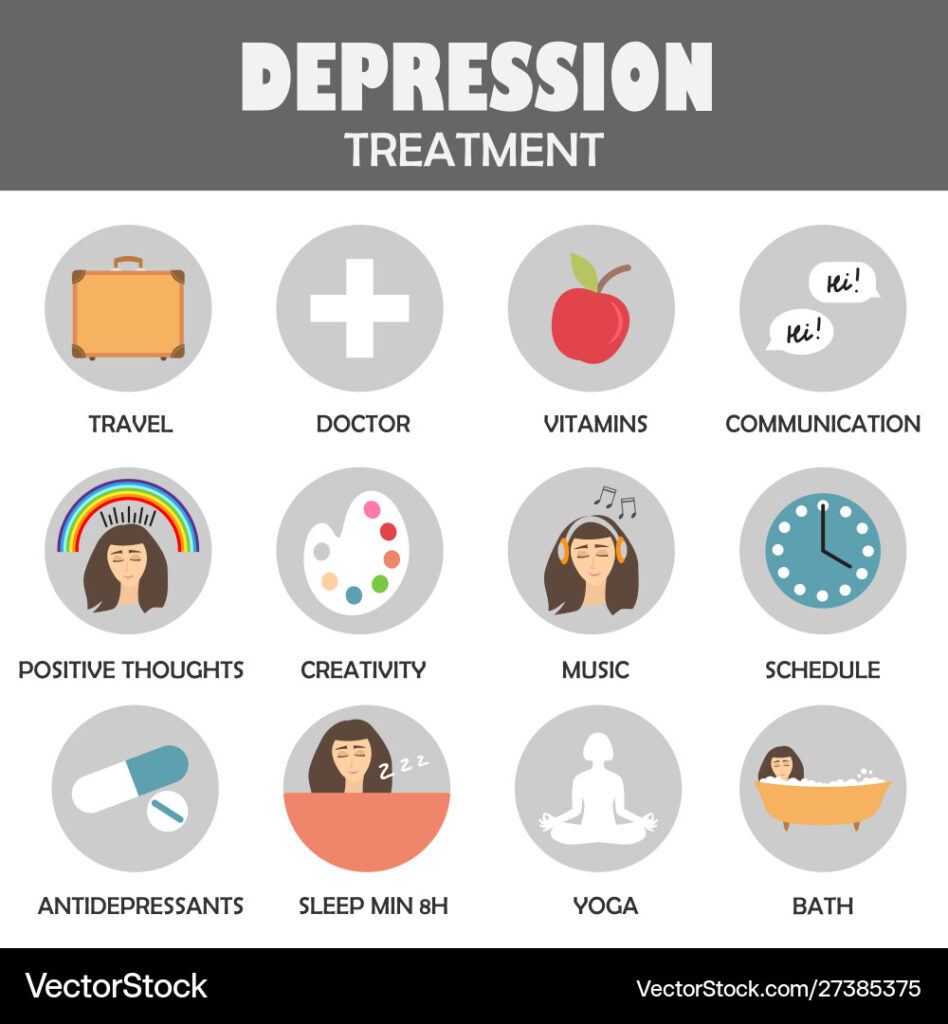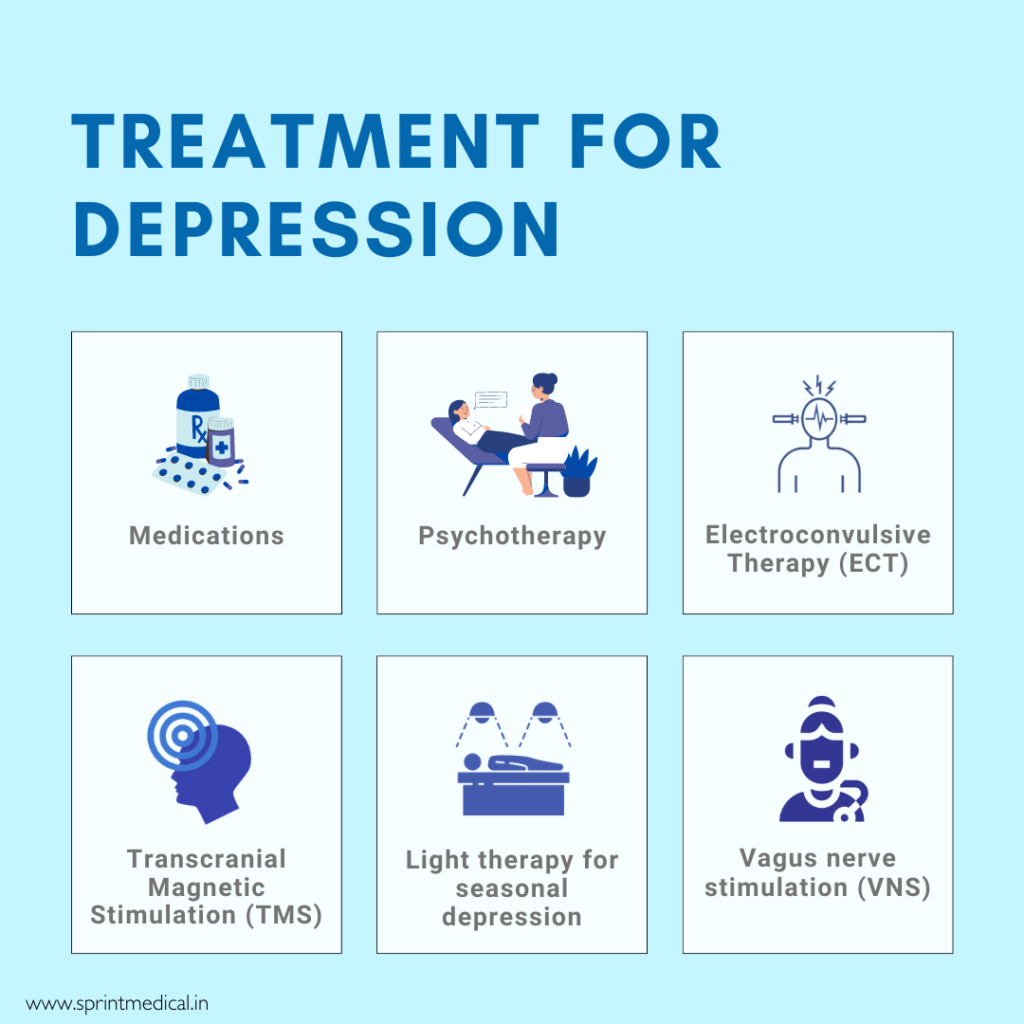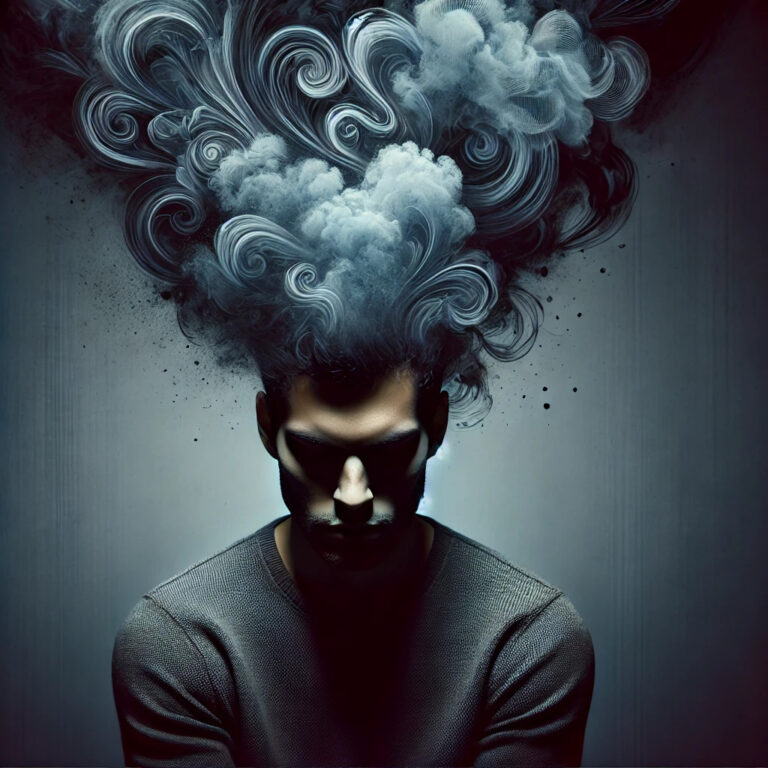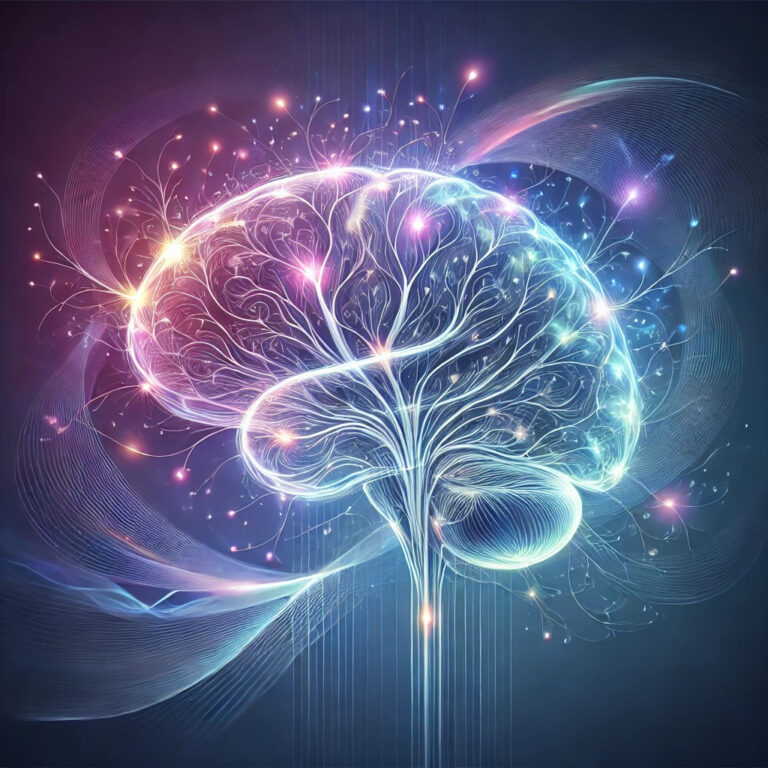Depression Treatment: Effective Ways to Overcome and Manage Depression
Depression is a common mental health also there are many depression treatment conditions affecting millions worldwide. It’s a complex disorder with diverse symptoms that can impact anyone, regardless of age, gender, or background. Understanding the treatment options available is crucial to managing depression effectively. This guide covers some of the most effective treatments for depression, including traditional therapies, modern interventions, and perspectives on depression treatment in Islam.
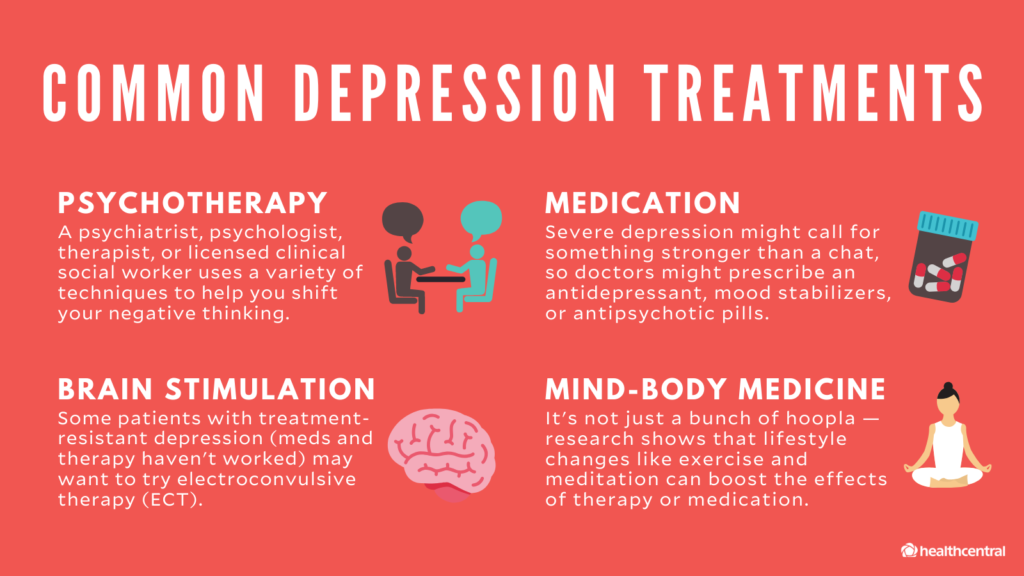
What is Depression?
Depression is a mood disorder marked by persistent feelings of sadness, hopelessness, and a loss of interest in daily activities. Unlike typical mood changes, depression lasts longer and disrupts daily life. According to the World Health Organization (WHO), depression is a leading cause of disability worldwide. However, with the right treatment and support, many people can manage their symptoms and lead fulfilling lives.
Treatment for Depression: Traditional and Emerging Approaches
1. Medication
Antidepressants, particularly selective serotonin reuptake inhibitors (SSRIs) and serotonin and norepinephrine reuptake inhibitors (SNRIs), are commonly prescribed for treating depression. These medications work by balancing chemicals in the brain, which helps relieve symptoms in many patients. Other options include atypical antidepressants and mood stabilizers. Medication is most effective when combined with therapy, as it primarily helps manage symptoms rather than addressing root causes.
2. Therapy
Psychotherapy, or “talk therapy,” is essential for treating depression. Therapies such as cognitive behavioral therapy (CBT) and interpersonal therapy (IPT) help identify negative thought patterns, cope with stress, and build resilience.
Therapists work with individuals to identify the triggers of their depression and develop coping strategies. For many, therapy offers a safe space to explore their feelings, gain valuable insights, and learn long-term mental health management skills.
Resistant Depression Treatment
Resistant depression (also known as treatment-resistant depression) refers to cases where standard treatments, such as medication and therapy, do not provide the desired relief. For these cases, alternative depression treatments may be considered, including:
- Electroconvulsive Therapy (ECT): ECT is a controlled procedure involving mild electrical currents passed through the brain. It is primarily used for severe, treatment-resistant depression and has shown promising results in some patients.
- Transcranial Magnetic Stimulation (TMS): TMS uses magnetic fields to stimulate nerve cells in the brain, helping alleviate symptoms. TMS is a non-invasive treatment suitable for individuals who haven’t responded to traditional treatments.
- Ketamine Therapy: Originally an anesthetic, ketamine has recently gained attention as a treatment for resistant depression. It is usually administered in low doses, either through IV infusions or as a nasal spray. Ketamine acts quickly to relieve depressive symptoms, making it a valuable option for those needing rapid intervention.
Side Effects of Ketamine Treatment for Depression
Ketamine treatment can be highly effective, especially for those with severe, treatment-resistant depression. However, it does carry potential side effects, which should be discussed with a healthcare professional:
- Dissociation: Some people experience a temporary sense of detachment from reality during or after ketamine treatment.
- Nausea and Vomiting: These are common, especially after intravenous administration.
- Increased Heart Rate and Blood Pressure: This can be concerning for individuals with cardiovascular issues.
- Mood Swings: Some patients report increased emotional sensitivity, mood swings, or agitation following treatment.
Due to these potential side effects, ketamine is typically reserved for cases where other treatments have proven ineffective.
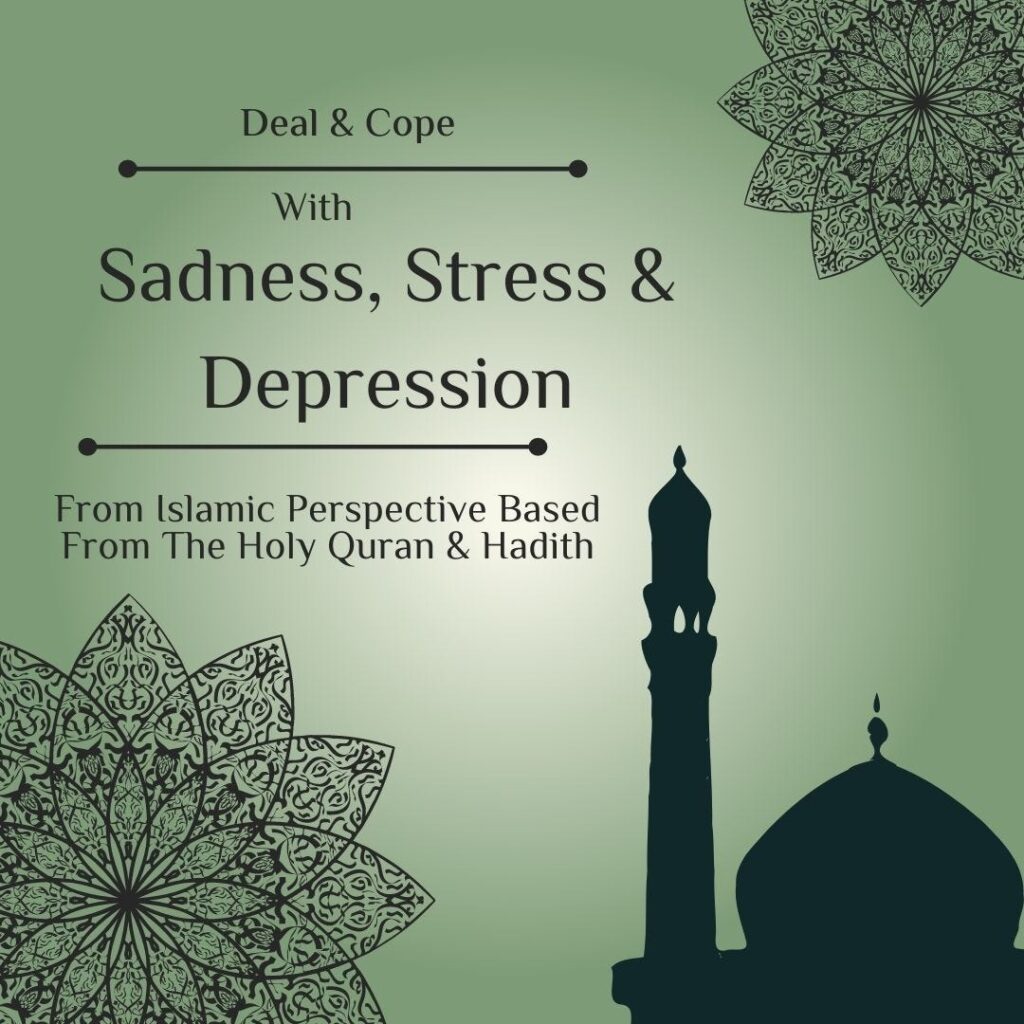
Treatment Goals for Depression
Successful treatment for depression often follows specific goals aimed at improving a person’s mental health and quality of life. These goals may include:
- Symptom Reduction: Minimizing symptoms like sadness, anxiety, and irritability is usually the primary goal.
- Improved Daily Functioning: Helping the individual re-engage with daily activities, work, and relationships is crucial to recovery.
- Relapse Prevention: Long-term strategies, including lifestyle changes and therapy, aim to prevent relapse and help manage symptoms effectively.
- Personal Growth: Therapy often encourages self-awareness, self-compassion, and healthy coping mechanisms for the future.
How Does Therapy Help in the Treatment of Depression?
Therapy plays an essential role in managing depression. Here are a few ways it helps:
- Identifying Negative Thought Patterns: Cognitive Behavioral Therapy (CBT) helps people recognize negative thoughts that contribute to depression. By challenging and changing these patterns, people can improve their mood and mental outlook.
- Building Coping Strategies: Therapy provides tools to manage stress, anxiety, and depressive symptoms, which can be valuable throughout life.
- Improving Relationships and Communication: Interpersonal therapy (IPT) focuses on improving communication and relationship skills, which are often negatively impacted by depression.
- Empowering Self-Understanding: Therapy helps individuals understand their depression triggers and equips them with strategies to manage them, fostering a sense of control over their mental health.
Depression Treatment in Islam
For many Muslims, faith and spirituality are essential in managing life’s challenges, including depression. Islam offers unique perspectives on mental health, encouraging both spiritual and practical solutions. Here’s how Islamic teachings may aid in treating depression:
- Turning to Prayer and Reflection: Regular prayer (Salah) and Quranic recitation provide comfort and reduce feelings of loneliness or despair. The act of prayer fosters mindfulness and a sense of connection to a higher power.
- Seeking Help: Islam emphasizes seeking help, both from Allah (through supplication or “dua”) and through worldly means, like therapy and medication. The Prophet Muhammad (PBUH) said, “For every disease, there is a cure,” encouraging Muslims to pursue treatment without feeling it contradicts their faith.
- Community Support: The Islamic concept of Ummah (community) promotes helping and supporting one another. Sharing struggles within a supportive community can alleviate isolation and provide a safety net.
- Trusting in Allah’s Plan (Tawakkul): Belief in Tawakkul, or trust in Allah’s plan, provides comfort in challenging times. Islam encourages followers to rely on Allah for strength and patience, which helps in managing the emotional weight of depression.
- Engaging in Positive Actions (Sadaqah and Dhikr): Giving charity (Sadaqah) and performing acts of kindness can uplift one’s spirit. Additionally, Dhikr (remembrance of Allah) and gratitude practices foster a positive mindset, countering depressive thoughts.
Integrating Islamic Perspectives with Modern Treatments
Combining Islamic practices with modern treatments allows Muslim individuals to maintain their spiritual identity while seeking practical solutions. Many therapists today offer culturally sensitive approaches that respect religious beliefs, enabling individuals to explore treatments aligned with their values.
Last Thoughts
Depression is challenging but treatable. With options ranging from medication to therapy and alternative methods like TMS and ketamine, people have multiple ways to manage their symptoms. For Muslims, integrating Islamic principles with medical approaches offers a holistic path to mental health.
Understanding the nuances of each treatment, setting realistic goals, and recognizing the role of therapy are essential steps in managing depression effectively. Science and spirituality can intersect, offering hope to those facing depression and reinforcing that there is a path to healing—and that no one has to walk it alone.
What Are the Best Treatment Options for Depression?
There are several effective treatment options for depression, including therapy, medication, lifestyle changes, and self-care practices. Popular therapies like cognitive-behavioral therapy (CBT), interpersonal therapy (IPT), and psychodynamic therapy help address and manage symptoms. Antidepressant medications, such as SSRIs and SNRIs, are also commonly prescribed, but a doctor will recommend the best approach based on individual needs.
How Effective is Therapy for Depression Treatment?
Therapy can be very effective in treating depression, especially when paired with other treatments. CBT, for instance, is one of the most researched therapies and helps people identify and change negative thought patterns. Many individuals find significant relief from symptoms through regular therapy sessions with a qualified mental health professional.
Are Antidepressants Safe, and Do They Have Side Effects?
Antidepressant medications are generally safe when taken as prescribed, though they may come with side effects. Common side effects include nausea, weight changes, fatigue, and occasionally sexual dysfunction. Discuss any concerns with your doctor, who can help you find the best medication and dosage for your needs.
Can Lifestyle Changes Help Manage Depression?
Absolutely, lifestyle changes play a big role in managing depression. Regular exercise, a balanced diet, and good sleep habits can all have positive effects on mood and mental well-being. Practicing mindfulness, and meditation, and spending time on enjoyable hobbies can also reduce stress and support recovery.
How Long Does It Take to See Results from Depression Treatment?
The time it takes to see results from depression treatment varies from person to person. Therapy may show benefits after 6-12 sessions, while antidepressant medications typically take 4-6 weeks to start working effectively. Patience and consistency with treatment are essential, and it’s important to stay in regular contact with your healthcare provider for the best outcomes.


